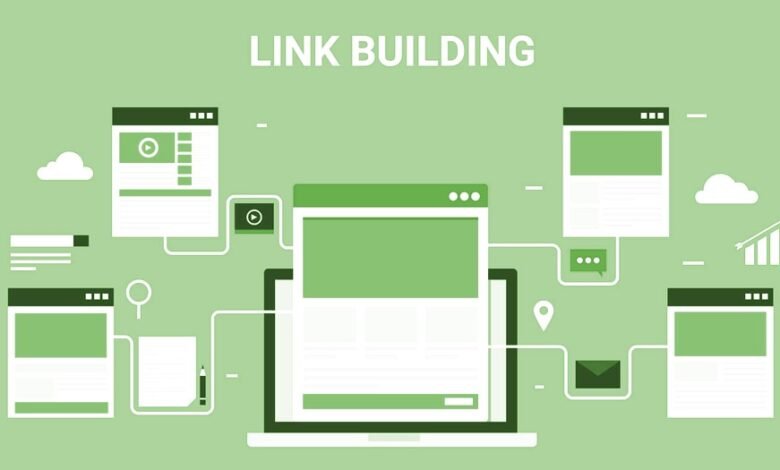
There is no getting around the fact that you will need to have a strong backlink profile in order to survive in the congested digital marketplace of today. No longer an option, having a strong link-building plan is essential for every webmaster, marketer, or company attempting to succeed online.
Don’t worry if you’re not familiar with link building or how it works; we’ve got you covered. In order to help you cut through the complicated lingo, learn the ropes, and use this newly acquired knowledge to hit the top of SERPs, we’ve assembled all the link-building fundamentals you need to know under one roof.
Ready? Let’s get started with our helpful introduction to link-building.
Read More: Link Building 101: All You Need to Know
Table of Content
- Learning the Ropes: What Are Backlinks?
- Why Is Link Building Important?
- Three Main Types of Links in SEO
- Link Building Best Practices: Pro Tips for Successful Link Building
- Build Your Way to the Top One Link at a Time
Learning the Ropes: What Are Backlinks?
Backlinks are a term that you’ve probably encountered more than once if you’ve spent any time navigating the waters of digital marketing. A backlink is a connection between your website and an important external website. Backlinks, which are often referred to as “incoming links,” “inbound links,” or “external links,” are the foundational elements of the SEO link-building process.
Backlinks, commonly referred to as “one-way links” (because they reflect traffic from another website that enters your site), are highlighted anchor text that, when clicked, directs users to a specific page on your website. Real-world instances of backlinks may be found all over the internet, particularly on blogs and instructive articles that link back to pertinent content.
Read More: 10 Best Ways to Get Quality Backlinks to Your Website
What Is Link Building, Exactly?
The act of acquiring inbound links is known as “link earning” or “link building,” and it is an essential part of SEO. A search engine optimization (SEO) approach called link building involves the process of getting or earning links.
How Does Link Building for SEO Work?
The following approaches make up the majority of link-building strategies:
Adding links by hand to websites
Reaching out to website owners and webmasters to request links is known as “outreaching.”
Purchasing links
Acquiring natural links from site visitors who have already visited your site.
Your best option is to produce engaging, valuable content that is promoted in order to increase your organic traffic and acquire worthwhile inbound connections. To ask for reviews or to guest post on other people’s websites, you can also use HARO services or get in touch with bloggers and other influencers in your industry. Avoid using black hat SEO strategies, such as buying links, as they can lead to penalties and frequently originate from spammy websites with poor link profiles.
Why Is Link Building Important?
As you surely already know, SEO is the key to unlocking success in the digital world. Backlinks are the foundation of SEO. The great power of high-quality content and high-quality links can go a long way, but there is no secret recipe for improving your site’s rating in the SERPs.
The foundation of Google’s initial “PageRank” algorithm was backlinks. Backlinks continue to be a crucial ranking indication that is not going away any time soon, making it one of the most significant search engine ranking variables, despite the algorithm having altered much since then.
For each given search query, Google and other search engines seek to make sure they only provide the most reliable, respectable, and pertinent results.
A good number of high-quality links going to your website is a strong indication of worth and reputation that can affect your position because links are one of the main ways search engines judge the relevancy of a web page when they crawl.
6 Reasons Link Building Is Crucial for Your Website’s SEO
The following are some of the most notable SEO advantages of link building:
- Building a brand
- Building and enhancing reputation and authority
- Establishing Meaningful Relationships
- Improved Visibility and Traffic
- Opening Up Keyword-Ranking Possibilities
- Acquiring Useful Information and Insights
Three Main Types of Links in SEO
After covering the fundamentals, it’s time to discuss the technical details of backlinks so you can evaluate the worth of various link kinds and choose which ones to target throughout your link-building campaigns.
No-Follow/Do-Follow Links
The most popular sort of links are follow links, which are standard links with qualities that tell Google bots to follow them and pass PageRank. As a general rule, you want to increase the number of “followed” links to raise our ranks.
But you shouldn’t pass up the chance to receive a no follow link from a page with high relevance and authority.
No follow links are helpful if you need to connect to a website but don’t want to support it since they instruct search engine bots not to follow a specific, but they nevertheless generate brand awareness and referral traffic despite not passing domain authority or link equity.
User-Generated Links
User-generated links indicate to Google that a link is contained within user-generated material, such as a user remark or forum post, and that it is not an advertisement. User-generated links are links made by individuals rather than brands. However, it’s not really advised to incorporate user links within the content of your website.
User links are regarded as low-quality and, as a result, are likely to not pass any authority; Google even used to punish them in the past. However, they may not harm your results.
Therefore, it is better to stay away from such links and stick to white-hat link-building techniques to develop high-quality backlinks instead.
Natural Links
A natural connection is one that websites get on their own initiative and without being specifically requested. Natural links point to information that other bloggers or webmasters have actually deemed relevant.
Unnatural links, on the other hand, are links that are not requested or paid for (paid links/sponsored links) and are not natural or organic.
Natural links are one of the strongest and safest link-building tactics to increase your domain authority, reputation, and market your blog or website because they are not a part of a paid campaign but are typically added by a blogger or webmaster to provide value to their readers.
Which Types of Links Matter The Most For SEO?
What are the most helpful links? It depends, just like with the vast majority of SEO-related queries. The E-A-T model, which stands for experience, authority, and trust, is one of the greatest techniques for identifying the most beneficial linkages.
What Makes a Good Link?
Not all backlinks are equally important in the eyes of search engines, despite being generally preferred. Links from spammy or irrelevant websites, as well as links that are out of context, might hurt your site’s ranking. Therefore, linkages are necessary, and they must be “good.” However, how can you tell if a connection is reliable? A “good” link is defined by what.
A “good link,” in other words, is a link obtained through ethical SEO techniques that will be regarded favorably by search engines and, as a result, have a positive impact on your search rating rather than doing nothing or even harming it. The topicality, niche, and readership of a website can say volumes about a link, as can the quantitative measurements that different SEO tools like PageRank, Domain Rating (DR), or Domain Authority (DA) provide.
More SEO value, or link equity, is provided by relevant and high-quality backlinks that are acquired from a variety of reliable, trusted sources, such as authoritative websites that are topically connected to your area. A website will confer more authority on your site the more credibility and authority it has. Additionally, if reputable websites are endorsing your website, Google will be pleased and is more likely to give you a high ranking in SERPs.
Link Building Best Practices: Pro Tips for Successful Link Building
There are some general rules on how to obtain and earn valuable links that can improve your SEO, despite the fact that link building is not a process that is set in stone.
Good links are all about quality, thus they must originate from credible, authoritative, and thematically relevant content sites that correspond to your specialty or line of business. As a result, rather than pursuing each and every link opportunity that presents itself, try to obtain links from trustworthy and authoritative websites that are related to your own.
In order to determine the keywords the linked-to page should rank for, Google also analyzes the anchor text. So, be careful not to mislead readers with clickbait or make false promises. Instead, make sure your anchor text accurately represents what people will receive after clicking the link. Keep an eye on where your links are placed on a page as it might effect their click-through rate as the likelihood of a link being clicked may also affect how much authority it transfers (CTR).
In addition to defending your website from the dreaded Google updates, prioritizing quality over quantity can help you establish authority in the online world, continuously bring referral traffic of leads who may later develop into devoted followers, customers, engaged readers, and a never-ending source of links and social media traffic.
Build Your Way to the Top One Link at a Time
The more diverse and credible websites that link to your site, the more it will persuade search engines that your content must be worthwhile referring to. Backlinks are other websites’ ways of alerting search engines and readers that they vouch for you.
The moral of the story is that, if you take advantage of all that link building has to offer and do it correctly by obtaining a significant number of valuable inbound backlinks from high authority sites as part of your SEO strategy, it won’t be long before your search visibility, reputation, and position at the top of SERPs and your industry skyrocket.











